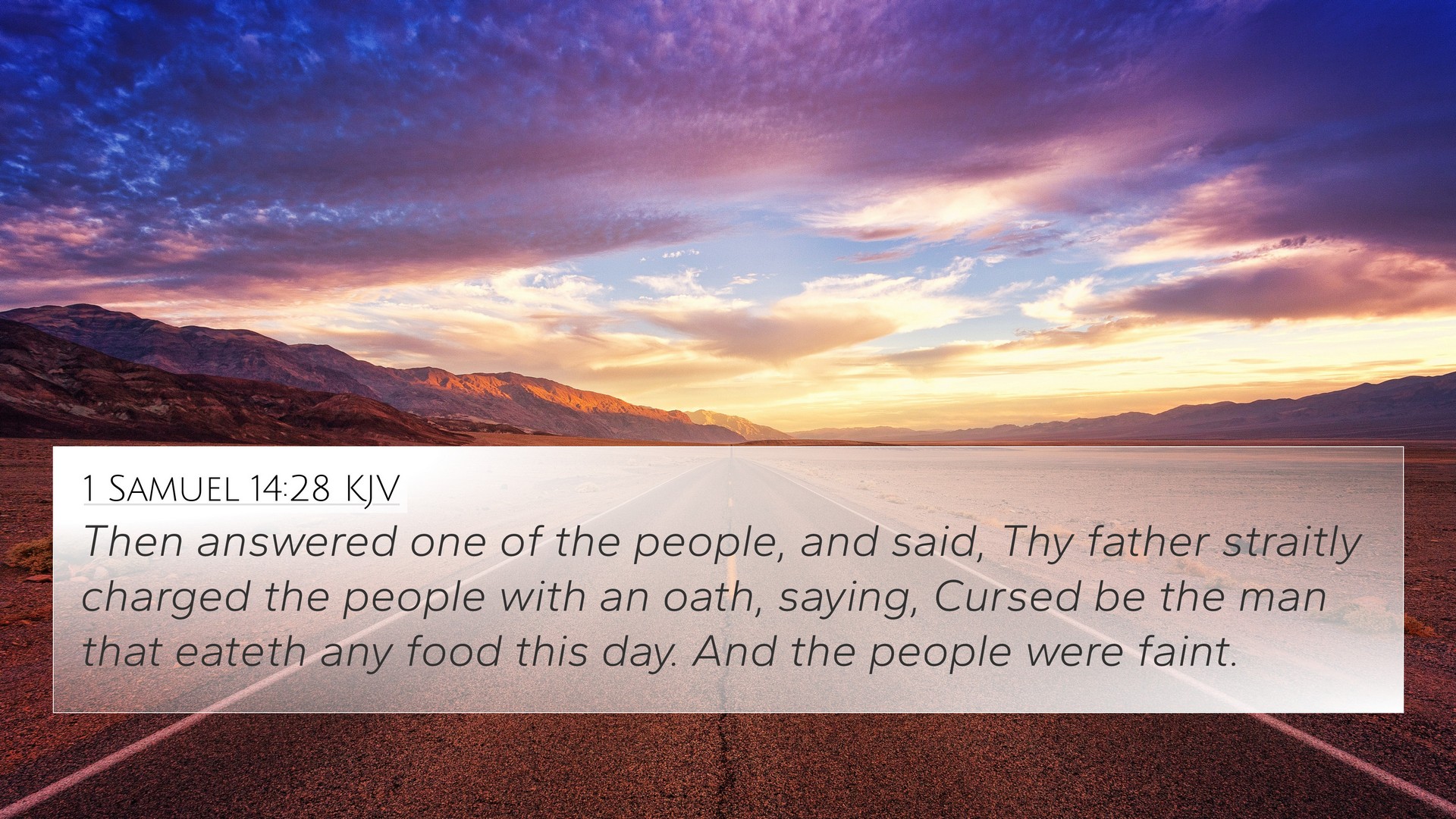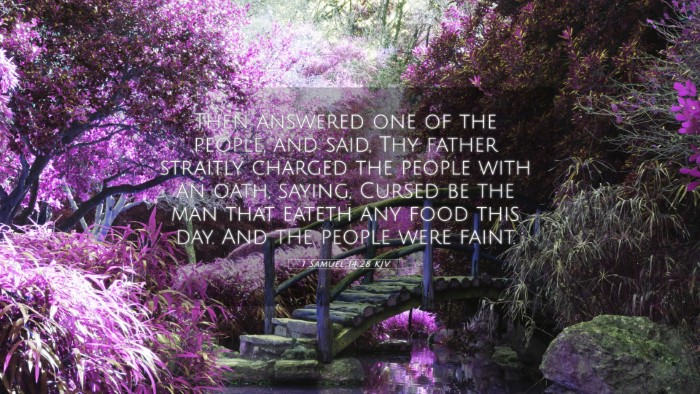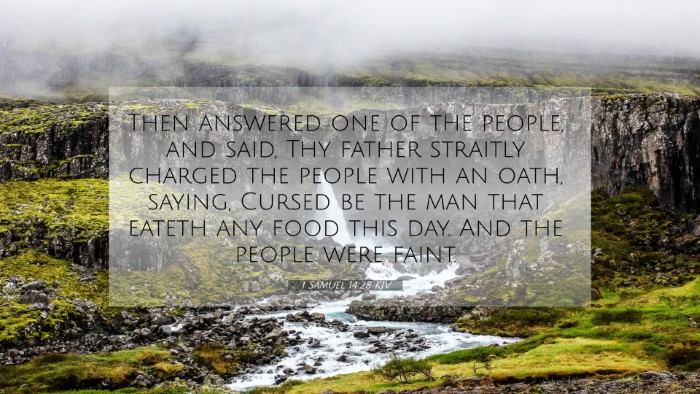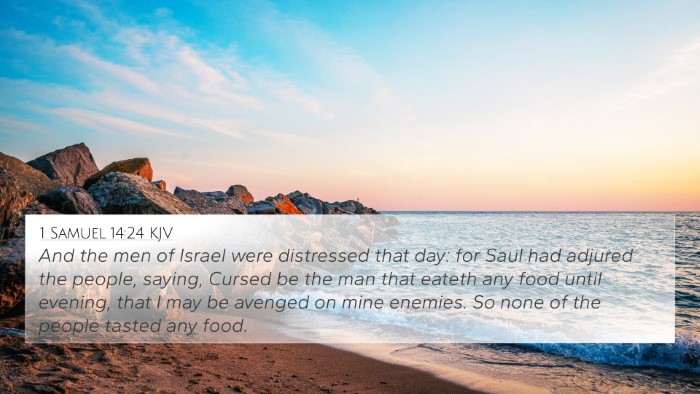1 Samuel 14:28 - Meaning and Interpretation
Bible Verse: 1 Samuel 14:28
“Then answered one of the people, and said, Your father straitened the people with an oath, saying, Cursed be the man that eateth any food this day. And the people were faint.”
Summary of Insights
This verse highlights a moment during a military campaign led by King Saul. The people's exhaustion is exacerbated by Saul’s oath, which forbade them from eating. The psychological and spiritual implications of oaths, especially in leadership, are significant themes explored by various commentators.
Commentary Insights
Matthew Henry
Matthew Henry elaborates on the consequences of Saul’s rash oath. He suggests that such oaths, while intended to motivate, can lead to detrimental effects on the morale and health of one's followers. Saul's desire to assert control ultimately backfires, illustrating the importance of wisdom in leadership.
Albert Barnes
Albert Barnes emphasizes the folly of Saul’s decree, citing that the oath created unnecessary hardship for the troops. He notes that in a time of war, providing sustenance is crucial for maintaining strength and resolve. Barnes suggests that Saul's lack of foresight illustrates a disconnect between the leader's intentions and the realities of his people's needs.
Adam Clarke
Adam Clarke brings attention to the emotional and physical state of the soldiers. He indicates that the oath resulted in hunger-induced weakness among the troops, and he remarks on the tension between divine providence and human decisions. Clarke implies that spiritual leadership must align with practical support to be effective.
Key Themes and Lessons
- The Impact of Leadership: Leaders must consider the ramifications of their decisions on their followers.
- The Role of Oaths: The binding nature of oaths in the Biblical context and their potential to cause harm when not thoughtfully made.
- Consequences of Rash Decisions: Quick, unconsidered actions can lead to unintended negative outcomes.
- Nourishment and Strength: Physical sustenance is vital, especially in times of conflict.
- God’s Sovereignty vs. Human Reasoning: The challenge of aligning human commands with divine will and understanding.
Related Bible Cross-References
- 1 Samuel 14:24: Saul's command to abstain from food.
- Proverbs 20:25: The dangers of making hasty vows.
- James 5:12: The importance of honesty in speech over making oaths.
- Matthew 5:33-37: Teachings of Jesus on not swearing oaths at all.
- Judges 11:30-31: Jephthah's vow and its tragic outcome.
- Romans 14:21: The principle of not causing others to stumble through one's decisions.
- 1 Corinthians 8:9: Food offered to idols and its implications on fellow believers.
Connections Between Bible Verses
The oath made by Saul creates a scenario reminiscent of other Biblical figures who faced challenges due to personal vows or commands. These connections reveal deeper themes of faith, obedience, and the need for wise leadership. A cross-referencing Bible study might illuminate how these verses interact with one another.
Scriptural Cross-Referencing and Thematic Connections
Recognizing the interconnectedness of Biblical texts is essential for understanding the comprehensive narrative woven throughout scriptures. Analyzing these verses provides a more profound insight into the nature of God's intentions with His people and the overarching narrative of redemption.
Tools for Bible Cross-Referencing
For those interested in in-depth study, various tools can assist with cross-referencing Biblical texts. These include:
- Bible concordance for thematic searches.
- Cross-reference Bible study guides for exploring interconnections.
- Online databases and software to find related verses quickly.
Finding Bible Verses Related to 1 Samuel 14:28
If you are seeking to understand the broader implications of this verse, consider how it ties into discussions about the importance of leadership, the effects of ambition, and the role of divine wisdom in decision-making.




